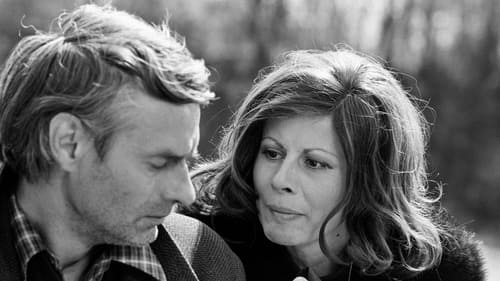
After five years of hard work in America Juraj Hordubal (Anatoliy Kuznetsov) returns back home. He is looking forward to his wife Polana (Libuse Geprtová) and his little daughter Hafie. The family and the village welcome him with hesitation. Everybody believed that Juraj died in America because Polana stopped receiving money from him already two years ago. Polana's farm was prospering first of all thanks to the young stable boy Stepán (Sándor Oszter). Men in the pub first indicate and then say to Juraj directly that Polana has been unfaithful to him with Stepán.

An original television film about a city who goes to the village for vacations and finds real friends there.

Strapotová
A television film based on a play by Ján Kákoš with the theme of Slovak National Uprising.

Slovakian villagers towards the end of WW II are despairing as German troops fall back to their village.

Mama
In the summer of 1944 soldier Csorba is rewarded with furlough at a price of having committed a murder. He escapes. He tries to get to the heights of the Carpathians with Mother, to the cave of those who wish to die. That is where his mother and his father, the deserter, might be hiding.

Mother
A girl is transformed into a maple tree by her impulsive and angry mother. Three poor wandering musicians come by the tree and create instruments from it. Walking around the country instead of happiness they bring death everywhere with their cursed instruments. However they cannot get rid of them, unless they bury the wooden instruments at the place of the tree. The three are anything but harmonious, each taking in their disputes various stances.

Agneša

Television film, based on Rudolf Jašík's novel of the same name, tells the story of a blind boy rejected by his own family.

Sivonka
A film about the dramatic lives ofthe people of the village of Ráztoka during WW I. Women are left without husbands, families fall apart, finding themselves on the verge of poverty. Eva, the main heroine, is going through difficulties after her husband was drafted to the army. Her defilement and her tragic death cause a rebellion by which the village inhabitants finally stand up against their unbearable situation.


По одноимённой пьесе Петера Карваша. Декабрь 1944 года. Молодой партизан Дюрко Кубиш бежит из фашистского плена и прячется в доме родителей, которые сотрудничают с оккупантами. Родные Дюрко знают, что если его обнаружат в их доме, то будет расстреляна вся семья. Но они также надеются, что в случае разгрома фашистов Дюрко вспомнит об оказанной ему помощи. Однако страх перед фашистами побеждает, и родственники решают выдать его. Мать, желая спасти сына от смерти, рассказывает о нём священнику и просит помощи. Но священник выдаёт Дюрко фашистам, и его арестовывают, когда вся семья отправилась в церковь на мессу.


1942 год. Словакия, союзник Гитлера. Мишо Звара, учитель пения, призывается в армию и в составе словацкой дивизии перебрасывается на Кавказ. Здесь уже идут ожесточенные сражения против фашистских завоевателей, стремившихся вторгнуться в Грузию. Мишо Звара и его друзья переходят на сторону советских войск, но их помещают в лагерь военнопленных. Мишо знакомится с советским офицером по имени Гурам и его сестрой, которая является главврачом санитарного поезда. Мишо гостит в семье Гурама в Сухуми. Словак и грузинка полюбили друг друга, но их пути временно разошлись. Через два года Гурам и Мишо снова встречаются, но теперь в горах Словакии, где немцы ожесточенно сопротивляются наступающим советским войскам.

Капитан Дабач служил в словацких частях гитлеровской армии, видел зверства и бессмысленную жестокость фашистов. Он всегда бездумно подчинялся приказам. Но однажды он не выполнил приказа и отказался расстреливать беззащитное население маленькой украинской деревни. Его судили, приговорили к расстрелу. Дабачу удалось бежать, и он примкнул к партизанам. В дни национального восстания против оккупантов Дабач был одним из его активных участников.

Slovak movie is based on the novel by the prominent representative of Slovak prose František Hečka, who was in 1952 awarded the State Prize. The novel and the movie successfully capture the development of Slovak village after the liberation in 1945. The narrative is centred around the characters of the old Púplava, who after the liberation begins to organise a new village life, and his struggle for the construction of settlements Mrzáčky, burnt by the fascists. It is centred around the conflict, greatly reflecting the situation of the countryside at this time: the conflict between the rural poor and the rural rich. In the movie, a rich personal and emotional life of other heroes pulsate besides the main storyline. The movie ends with the final defeat of the reactionary forces by Communists in February 1948, taking over all power in the state of workers and peasants. - "The Wooden Village" is released in celebration of the 7th anniversary of the Communist February Victory.

Фильм рассказывает о жизни на бедных словацких холмах, лазах, где сельское хозяйство находится на примитивном уровне и где поля дают скудный урожай. Социалистическая индустриализация тех дней, о которых рассказывается в киноленте достигла поразительного роста. Поэтому необходимо было решить проблему мелких фермеров на бедных фермах и нехватки рабочей силы на постоянно растущих промышленных предприятиях. Фильм о судьбе Матея Рендека, который возвращается в Словакию после 18 лет, проведённых в Америке, и о судьбе его семьи, годами трудившейся на бедных полях, показывает, как должна решаться эта проблема: на склонах создается кооператив, который с помощью машин может лучше справляться с сельскохозяйственными работами и при значительно меньшем количестве рабочих.












